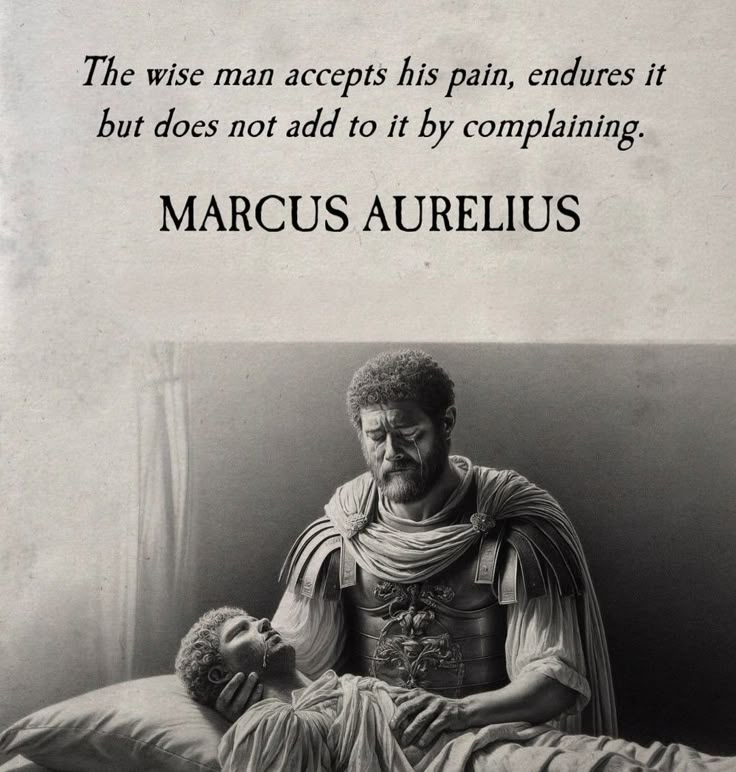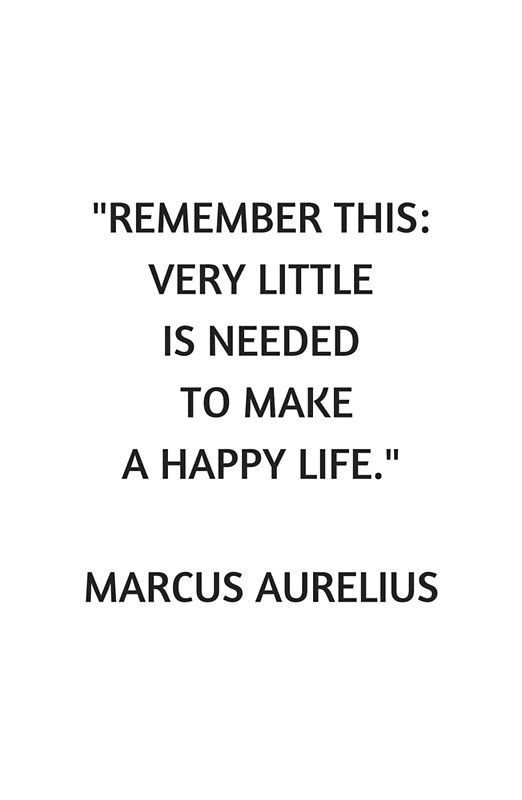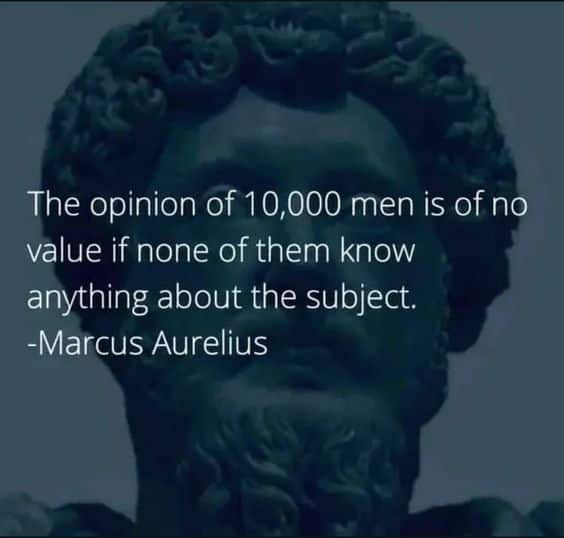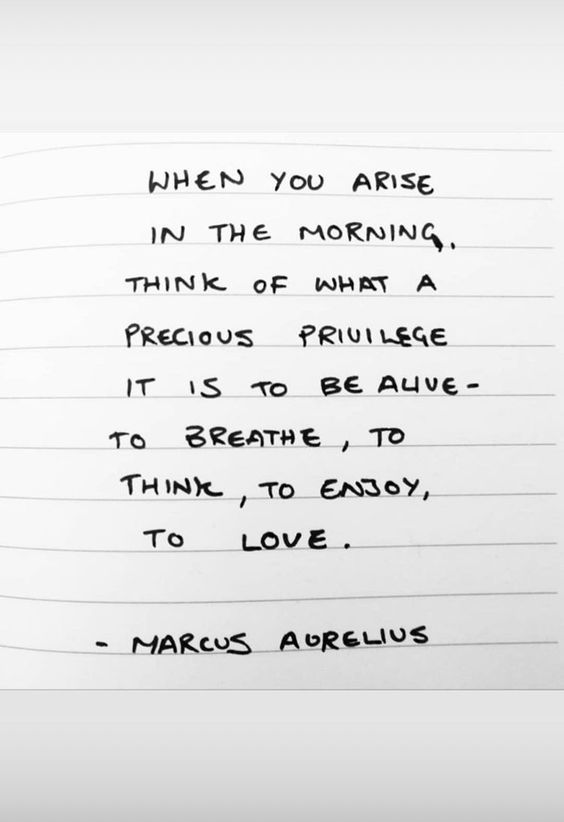“Queen Elizabeth inherited the monarchy. Marcus Aurelius was selected for the purple as a boy. But it wasn’t the throne that made either of them kingly, it was their behavior. They were what the ancients called first citizens, for their character as much as their rank. As Marcus said, his aim was never to be the most powerful king, never to conquer the most territory, or build the most beautiful buildings. Instead, he was after ‘perfection of character: to live your last day, every day, without frenzy or sloth or pretense.’ It just happens that wonderful external accomplishments, like those achieved by Elizabeth and Marcus, can come out of internal endeavor. They are not the goal, they are the byproduct.”
Ryan Holiday, Discipline Is Destiny (Page 283)
“The nearer a man is to a calm mind, the closer he is to strength.”
Marcus Aurelius, via Discipline Is Destiny (Page 249)
“‘You don’t have to turn this into something,’ [Marcus Aurelius] reminded himself when someone did something wrong or said something untrue about him. When he lusted after something, he stopped himself, turning those desires to stone before they burned through him and he did something he’d regret. He tried to make beautiful choices, tried to look for the best in people, tried to put himself in their shoes, tried to lead by serving. It was the pride of Marcus’s life that he not only didn’t need to ask anyone for favors but that anytime anyone asked him for something—money, advice, a hand—he could be generous.”
Ryan Holiday, Discipline Is Destiny (Page 234)
“It was said that the true majesty of Marcus Aurelius was that his exactingness was directed only at himself. He did not ‘go around expecting Plato’s republic.’ People were people, he understood they were not perfect. He found a way to work with flawed people, putting them to service for the good of the empire, searching them for virtues that he celebrated and accepting their vices, which he knew were not in his control.”
Ryan Holiday, Discipline Is Destiny (Page 232)
“In Meditations, Marcus [Aurelius] talks about how he had a good day because he escaped anxiety. Then, he actually corrects himself, he goes ‘Actually, no, I didn’t escape it, I discarded it because it was within me.’ He’s realizing that he is the common variable in all the situations that cause him anxiety, just as you are. Anxiety is within us. We want to work on [controlling] it and thinking about it so it doesn’t rule our lives — or ruin our lives.”
Ryan Holiday
“It’s possible, Marcus Aurelius said, to not have an opinion. You don’t have to turn this into something, he reminds himself. You don’t have to let this upset you. You don’t have to think something about everything. Do you need to have an opinion about the scandal of the moment–is it changing anything? Do you need to have an opinion about the way your kid does their hair? So what if this person likes music that sounds weird to you? So what if that person is a vegetarian? ‘These things are not asking to be judged by you,’ Marcus writes. ‘Leave them alone.’ Especially because these opinions often make us miserable! ‘It’s not things that upset us,’ Epictetus says, ‘it’s our opinions about things.’ The fewer opinions you have, especially about other people and things outside your control, the happier you will be. The nicer you’ll be to be around, too. Of course, this is not to say that we shouldn’t have any opinions at all, but that we should save our judgments for what matters—right and wrong, justice and injustice, what is moral and what is not. If we spend our energy forming opinions about every trivial annoyance, we’ll have none left for the things that actually matter.”
Ryan Holiday
“I just lost my wife of 60 years and it’s sort of devastating, but there was a Marcus Aurelius quote that really lifted me, which was that if you lose a loved one, honor her. In a sense, try to be more like her and then she’ll live on in your actions. My wife was very good—if someone was alone or sick or something, she’d call them up and be comforting to them. And I’m not like that, you know? So I started to do that. People that I know, some guys my age who have no grandchildren, I call them up and say, Hey, how are you? And they are so pleased and so kind. And that’s how I keep my wife in my life.”
Francis Ford Coppola
“Anger is easy. It’s easier to be angry than hurt. Being angry is active, it’s aggressive, it’s distracting. Hurt is acceptance. It’s something you sit with. It’s something you wish you didn’t feel, but you do. It’s something you wish hadn’t happened, but did. When Marcus Aurelius said it wasn’t manly to get angry, perhaps this is what he was saying. That the childish thing is to yell about and fight about and reject the hurt that you feel. The adult thing is to try to understand it, to come to terms with it, to understand that—like all things—it will pass, and that if you’re patient and have perspective, it will help. The responsible thing is to explore the roots of an emotion, to ask why you’re feeling a particular way, why something was so triggering or painful and to try to deal with that.”
Ryan Holiday
“Even if you have drifted off the path. Marcus Aurelius tried to remind himself that there was a spring of goodness inside of him and that no matter what he or anyone shoveled on some of it, it was still there, still fresh and new and ever-flowing. The Stoics did not believe in original sin. They did not think we were hopelessly broken. They believed that being who we were—living well, living as our nature intended us to live—was always possible. You might be low and awful right now, Marcus Aurelius writes in Meditations, but in just a few days you can be worthy of being seen as a god. He was telling himself he just had to go back to the teachings, go back to his principles, go back to the spring.”
Ryan Holiday
“Ambition is tying your well-being to what other people do and say… sanity is tying it to your own actions.”
Marcus Aurelius, Meditations
“Whenever you want to cheer yourself, think of the qualities of your fellows—the energy of one, for example, the decency of another, the generosity of a third, some other merit in a fourth. There is nothing so cheering as the stamp of virtues manifest in the character of colleagues—and the greater the collective incidence, the better. So keep them ready to hand.”
Marcus Aurelius, Meditations (Page 125)
“Continually review in your mind those whom a particular anger took to extremes, those who reached the greatest heights of glory or disaster or enmity or any other sort of fortune. Then stop and think: where is it all now? Smoke and ashes, a story told or even a story forgotten. Think how worthless all this striving is: how much wiser to use the material given to you to make yourself in all simplicity just, self-controlled, obedient to the gods. The pride that prides itself on freedom from pride is the hardest of all to bear.”
Marcus Aurelius, Meditations (Page 120)
“That in a short while you will be nobody and nowhere; and the same of all that you now see and all who are now alive. It is the nature of all things to change, to perish and be transformed, so that in succession different things can come to be.”
Marcus Aurelius, Meditations (Page 119)
“If it is not right, don’t do it: if it is not true, don’t say it.”
Marcus Aurelius, Meditations (Page 118)
“Look at causation stripped bare of its covers; look at the ulterior reference of any action. Consider, what is pain? What is pleasure? What is death? What is fame? Who is not himself the cause of his own unrest? Reflect how no one is hampered by any other; and that all is as thinking makes it so.”
Marcus Aurelius, Meditations (Page 117)



